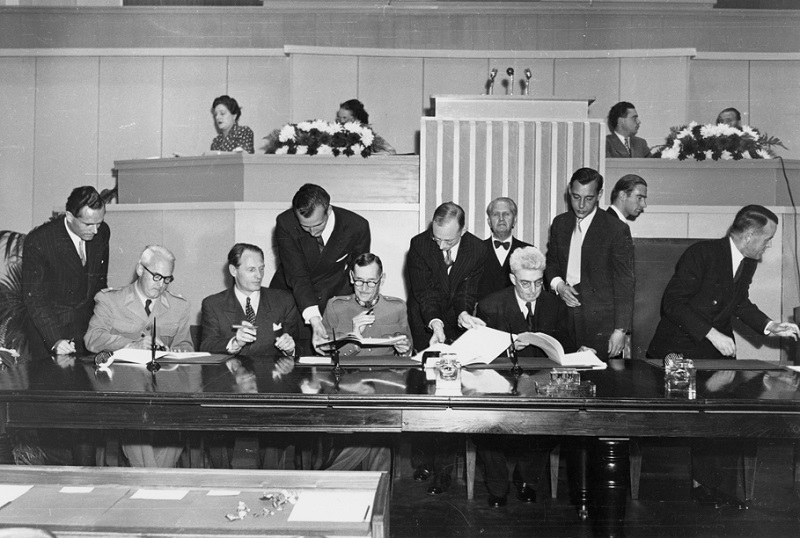Seventy years ago today, following the devastation of the Second World War, the diplomatic conference of the International Committee of the Red Cross adopted the Geneva Conventions – also known as the laws of war. The Conventions describe how, in times of war, nations should treat the wounded and sick, the shipwrecked, prisoners of war, and civilians. They have been signed by every country in the world.
It was a highpoint in multilateralism, a miracle of international consensus regarding the sanctity of human life and dignity in war. Such a thing is hard to imagine today, and because it is, it bears recalling how much we still need it.
Wars today are more numerous, complex, protracted and violent than before. They kill more civilians, and are harder to resolve. They involve more armed groups, and these groups are often radicalised and loosely structured, making them hard to deal with.
Most conflicts now are internal – fought between the armed forces of a national government and one or more non-state armed groups. The Geneva Conventions were written for international armed conflicts. But they contain some rules for non-international conflicts, and many states have also signed an “optional protocol” on the protection of civilians in non-international armed conflict. Moreover, many of the Convention’s provisions are now regarded as customary international law, applicable in all conflicts.
So the Conventions aren’t quite fit-for-purpose now, but nonetheless, the value of having something that even partially regulates today’s complex, brutal and intractable wars should hardly need stating.
Read the article by Rebecca Barber in The Interpreter.

